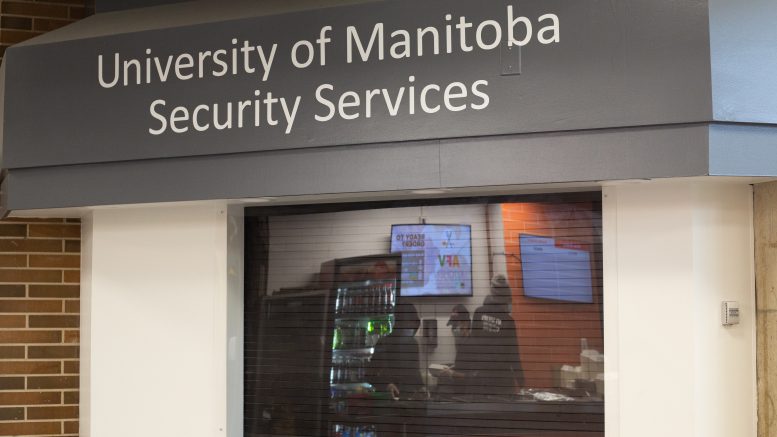The University of Manitoba will be implementing institutional safety officers (ISOs) to assist with campus security in the near future.
ISOs are licensed security officers who can be outfitted with batons, handcuffs and aerosol weapons, and who will be given limited powers to arrest individuals who are trespassing or intoxicated.
The Manitoba government implemented amendments to the Police Services Act in October 2021 to allow designated medical facilities and higher education institutions to utilize ISOs due to security issues caused by the number of people at these institutions, as well as their size.
Manitoba Minister of Justice and Attorney General Kelvin Goertzen was unavailable for comment. Jon Lovlin, a spokesperson for Manitoba Justice, said in a written statement that ISOs are intended to address “unique public safety needs.”
“Manitoba Justice is still working to finalize ISO agreements with post-secondary institutions, and therefore it would not be appropriate to offer any additional details about them,” Lovlin said.
A recent freedom of information request from the provincial NDP revealed that the government has been slow to implement ISOs, with none serving at any institutions throughout the province as of March 23 of this year.
The statement from Lovlin noted that, with the completion of a round of courses this week, approximately 30 ISOs will be trained and ready for service.
“The training classes delivered to this point have mostly been for community and First Nations safety officers,” Lovlin wrote.
The university is training existing security guards to become ISOs.
The Manitoban contacted the U of M administration for an interview and was directed to Security Services. The spokesperson was unavailable to comment at the time of publication.
UMSU vice-president advocacy Victoria Romero said that UMSU understands “the growing safety concerns” from students and that the union believes the university attempting to improve safety on campus is a good thing.
“However, the decision to address safety concerns in this way with the implementation of ISOs and having increased security presence has the potential to leave students feeling more unsafe than before,” she said.
“I would note that, specifically, Indigenous, Black and racialized communities face disproportionate rates of police violence.”
She said that with guards that are more heavily armed, “misuse of that power” is a concern, and explained that UMSU wants to ensure that this does not happen on campus.
Romero noted that the student union was not consulted or informed about the upcoming implementation of ISOs on campus.
She said that she has been approached by students with concerns about the implementation of ISOs, although she noted that some students support the decision. She said that UMSU has reached out to Gordon Perrier, the director of Security Services, to schedule a meeting to discuss the issue.
ISOs will receive mandatory training in public safety and crime prevention, mental health awareness, provincial law enforcement, use of force and officer safety, search and seizure procedures and arrests.
This training can be provided by the Royal Canadian Mounted Police, the Winnipeg and Brandon Police Services, Assiniboine Community College and Manitoba Justice. Other potential providers may submit their training curriculum to Manitoba Justice for approval to train ISOs.
ISOs at the University of Manitoba will also be trained in conflict management, de-escalation and suicide prevention.
Romero said she appreciated that ISOs will receive this training, but called it the “bare minimum” and expressed concern that racial sensitivity training was not mentioned in statements on ISOs from the government or Security Services.
She highlighted community-based safety organizations such as the Bear Clan Patrol and Mama Bear Clan, “two great examples of community-based outreach and security that takes into consideration the tumultuous relationship that many communities have with policing systems.”
The university plans to have ISOs in uniform on campus by the summer.





